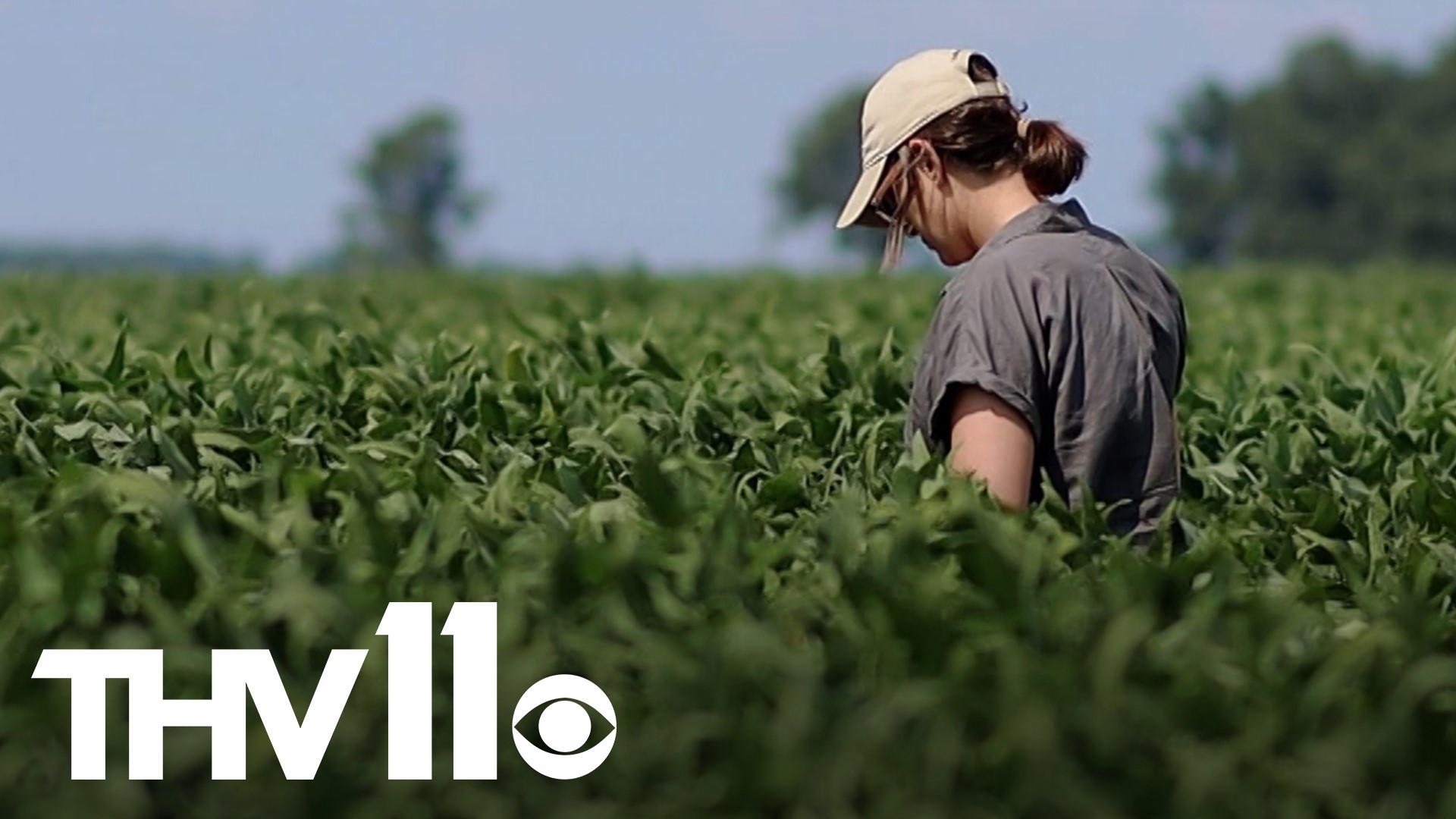JACKSON COUNTY, ARKANSAS, Ark. — This spring marked the fourth consecutive abnormally wet planting season for the Shoffner Research Farm in Jackson County.
Multiple heavy rain storms prevented sixth-generation farmer Hallie Shoffner from being able to work in her fields, which ultimately cost her small 2,200-acre farm a lot of money, and they inevitably reduced yield.
To make matters worse, when it did stop raining— a “flash drought” began.
Defined as a rapid onset or intensification of drought, this weather phenomena required Shoffner to pump water in order to keep her crops alive.
Shoffner said that the problem isn’t that we’re not accustomed to bad weather in Arkansas. Rather, it’s the increase in frequency and intensity that has been increasingly difficult for farmers and ranchers to withstand.
The weather whiplash that comes with such extreme shifts isn’t unique to Arkansas.
A recent analysis from Climate Central, a non-profit/policy-neutral group of scientists, found that 2022 has marked the eighth consecutive year with 10 or more billion-dollar weather-related disasters.
The same analysis found that the frequency of such events has also drastically increased. Today, an average of 26 days passes between “billion-dollar disasters”, compared to that of 82 days back in the 1980s.
“Climate change is no longer a hypothetical situation and Arkansas farmers and ranchers are bearing the brunt of this,” Shoffner proclaimed.
While climate change can be a divisive topic, Shoffner explained that the impacts of extreme weather have been threatening her family's way of life.
“It becomes very personal. For me, for farmers, it's not something that we can ignore. We did not have the luxury of ignoring climate change,” she added.
While the agriculture community may be the ones who are having to face the brunt of this, the rest of us have been paying the price at the grocery store.
“What kind of foods do you love? What do you go to the grocery store and buy? How accessible and affordable do you want those to be?”
Those are some of the questions that led Shoffner to rethink how she works the very soil her ancestors have for generations. In doing so she’s pioneered and reimagined farming in a more resilient and sustainable way.
On the Shoffner farm, which is located in her family’s namesake of Shoffner, Arkansas, you’ll find a multipronged approach to becoming more resilient to extreme weather, as well as conserving that land and resources that her family has farmed for over a century.
These days Shoffner approaches soil fertility much differently.
She minimizes the use of chemicals and fertilizers— You’ll also find fewer diesel power wells on her farm, and instead, electric wells are being used to pump water with the hope of soon using solar energy to power those wells.
Instead of planting traditional rice paddies, Shoffner will now plant row rice.
That will conserve the amount of water that is necessary for a healthy crop, and minimize the number of times her tractors and combines have to enter the field, which often damages the soil and farm equipment.
Shoffner has also been planting seeds of change, quite literally. Take Arkansas’s top two exports— rice and soybeans for example.
Shoffner’s farm has been actively working with some of the largest agricultural companies to grow and test new varieties of these crops. They were designed specifically to withstand the same harsh weather extremes that have become the norm.
“These genetics help farmers get more for less even in difficult conditions. The goal is better harvest, and more money for farmers. The upside is we're combating climate change at the same time,” she said.
Shoffner’s efforts have not only garnered the attention of her peers in the agriculture community in the Natural State but also national publications such as Garden and Gun Magazine have recognized her efforts towards sustainability.
She is hopeful that more farmers will continue following her lead.
“I would say I'm hopeful because I think the ag industry recognizes that it's time for action on climate change. And I would say that now is the time, more than any other,” Shoffner said.

